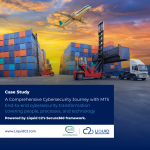Managed UTM

Managed Unified Threat Management
Liquid Intelligent Technologies Unified Threat Management (UTM) is a comprehensive security solution that allows for advanced threat management. Unified Threat Management (UTM) is an approach to information security where a single hardware or software installation provides multiple security functions. UTM provides an all-in-one coverage for common security needs including firewall, intrusion detection/prevention, anti-spam, and web filtering.
Prevent breaches and attacks
Enable a first line as well as multi-layered security control defenses against network perimeter attacks. First pillar in enabling network risk mitigation
Prevent unauthorised network access
Limit access protocols, services and applications
Detect and protect against network intrusion attacks
Identify reconnaissance attempts and defend against intrusions
An enabler for Secure Remote Access
VPN ability enables secure remote access sessions
Features of Unifed Threat Management
Liquid provides Managed Security and UTM solutions that are fully maintained and supported by IT security experts, offering you a comprehensive and superior service to reduce your capex and operational security expenditure
Multi-tenant – Liquid owned MSSP offering consisting of virtual UTM per customer
Dedicated UTM – Customer-owned device hosted within Liquid DC or at customer premises
Multi-tenant Vendor options – Cisco and Fortinet
Dedicated – Cisco, Fortinet, Check Point, Sophos, and Palo Alto to be provided upon request
Solution options – Next-generation firewall (NGFW), Virtual private networking (VPN), Secure Access Service Edge (SASE), Secure SD-WAN, and Zero Trust
Consolidated Management and Reporting – Reporting to relevant stakeholders
Event Logging and Storage – Linked to service level agreement (SLA)
Monitoring and Analysis service options – Monitoring and analysis linked to service level agreement (SLA)
The Liquid Intelligent Technologies Solution assists our clients by preventing:
Unauthorized Access – unauthorized access by users or devices, e.g., remote endpoints
Unauthorized utilization of Network Protocols, Services, Applications and IPs –Misuse and compromise via vulnerable or weakly configured network protocols, services, IP’s and applications
Malicious code and malware attacks, including phishing - Virus attacks, compromise via malicious code website exploits, phishing in all its forms
Hacker reconnaissance, exploits and Penetration – Hacker attacks on public facing infrastructure aimed at gaining access to private network assets
Intrusion and Brute Force - Intrusions attempts in all it forms including brute force attacks on user credentials
Denial of Service (DoS) and Distributed DDos – Interception of sensitive information including user passwords
Data Interception – Interception of sensitive information including user passwords
Web content filtering
Includes web access management and control, and related protection
Protection against DOS attacks
Protect against most basic DOS attacks
Gateway between security zones
Acts as gate between public and private (sensitive) networks with varying policy and protection requirements
Enables compliance
Enables compliance to legislative, regulatory, and contractual requirements











